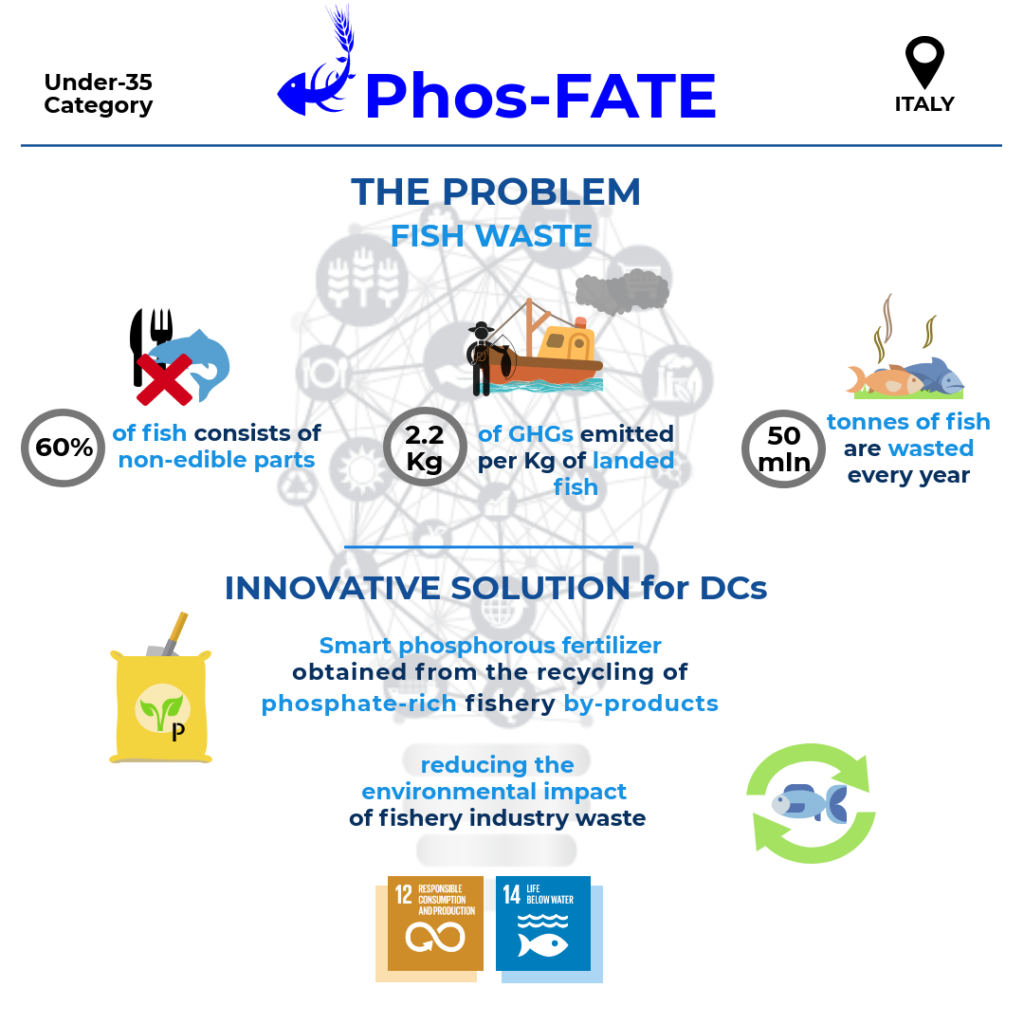Phos-FATE
Under 35 category |
ITALY
youtu.be/h4tGBeHfniY
|
Phos-FATE has conceived a sustainable phosphorus-based fertilizer made from recycled phosphate-rich fishery by-products. |


Although fish have many beneficial nutritional and functional properties, it is one of the most wasted food products today. By using a sustainable phosphorus-based fertilizer that is obtained from the recycling of phosphate-rich fish by-products, the Italian National Council for Research stresses how important and direct the link is between the fish industry and the food system. They reveal how links like these play an important role in thinking circularly and in turn ensuring that we do not overshoot the Planet’s natural resources and ultimately work towards regenerating it.
Innovation: The technology, developed by a research group of the Italian National Research Council (CNR), allows the conversion of fishery by-products’ waste into calcium phosphate-based fertilizers through an easily scalable and solvent free thermal process which can be easily applied by any operator in the fishing and farming sectors. It aims to reduce the environmental impact and the high cost of the fishery industry’s waste disposal.
Impact: The process developed by phos-FATE is simple and can be carried out in the least developing countries as a best practice to convert fishery by-products into high value agricultural and livestock products. The direct beneficiaries of phos-FATE in developing countries are the local artisanal fishing communities, the fish processing factories, and the aquaculture plants, that can generate revenues from the transformation of fish waste into commercial product. Taking aquaculture as an example, it is important to underline that fishmeal accounts for up to 70% of production costs. In addition, the production of phosphorus-based fertilizers from fish waste will mitigate the dependence of developing countries from the import of conventional fertilizers originated from non-renewable mineral resources.




